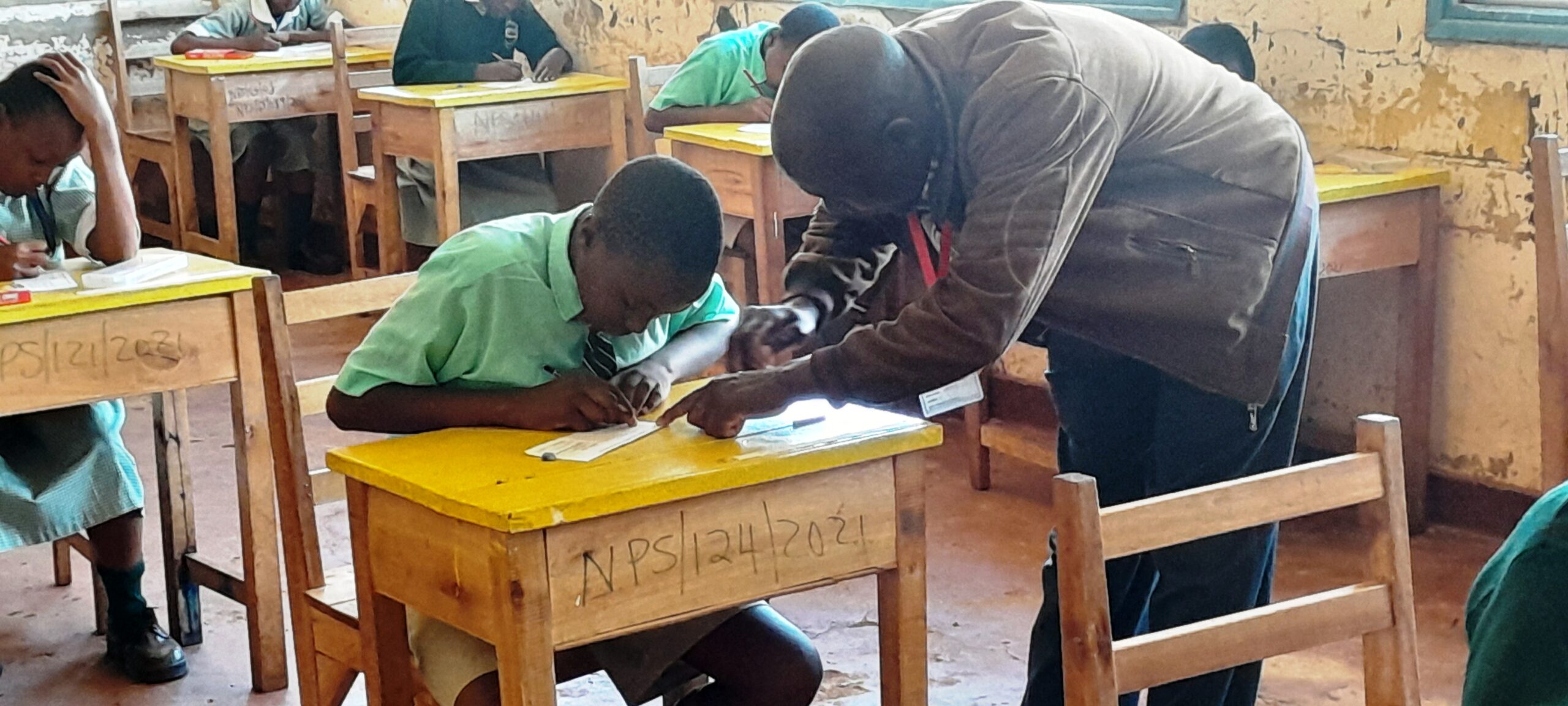I have seen a post that has been forwarded many times condemning the ongoing Kenya Certificate of Secondary Education (KCSE) invigilation exercise terming it the most boring task for a teacher.
Nothing could be further from the truth. The long hours of standing without a phone can serve as a detox, therapy and a moment of reflection. It depends on where one is standing. It is not all gloom.
For most teachers, KCSE invigilation is viewed as an arduous and monotonous task. The long hours of sitting in silence, with no distractions from a phone or book, can make it feel like time is crawling. This isolation, while necessary for maintaining exam integrity, is often a source of boredom and discomfort for many educators. However, beyond the tedium lies an unexpected silver lining. Invigilation can serve as a unique opportunity for detox, therapy, and reflection – a rare and beneficial pause in the otherwise hectic life of a teacher.
To understand the value of invigilation, it’s important to acknowledge its challenges. Teachers are usually accustomed to a dynamic environment filled with student interactions, problem-solving and multitasking. Being confined to a silent classroom for hours, doing nothing but watching students can feel like a stark departure from their usual routine. The silence is heavy, the minutes drag, and the lack of a phone or book to pass the time can create an uncomfortable sense of stillness.
It’s common for invigilators to experience restlessness. With their usual activities stripped away, they may find themselves anxiously waiting for the clock to tick faster, longing for the moment when they can finally stretch their legs and get back to their more engaging duties. But beneath this surface discomfort lies a deeper potential: the forced stillness can act as a form of detox – a mental and emotional cleansing that many teachers might not even realize they need.
In today’s fast-paced world, we are rarely disconnected from the barrage of notifications, messages, and tasks that compete for our attention. Teachers, in particular, are constantly on the move, juggling lessons, student needs, marking, and administrative duties. Invigilation, though often seen as a dull break from this routine, can actually offer an unexpected gift: a chance to detox from the constant flow of information and distractions.
Without a phone or book to focus on, invigilators are left with nothing but their thoughts. This period of enforced solitude can be uncomfortable at first, but over time, it allows the mind to unwind. It’s a chance to clear the mental clutter that builds up from constant activity. Teachers often find themselves thinking more clearly and feeling more mentally refreshed after invigilation sessions. In many ways, it’s similar to the effects of mindfulness or meditation – a deliberate stillness that gives the mind time to rest and recover.
Beyond detoxing, the stillness of invigilation can also have a therapeutic effect. While sitting in silence, teachers have the opportunity to reflect on their personal and professional lives. In the absence of external distractions, thoughts that might have been pushed aside during the busyness of daily life can rise to the surface. This time can be used to process emotions, reflect on relationships, or evaluate one’s teaching journey.
YOU MAY ALSO READ:
Construction of Jitume Lab in West Pokot kicked off with groundbreaking event
For some teachers, invigilation becomes a time to think about their students – how far they’ve come, the challenges they’ve faced, and the impact they’ve made. For others, it’s a chance to reflect on their own goals and aspirations, both inside and outside the classroom. The quiet can be surprisingly therapeutic, offering a rare moment of introspection that can help teachers reconnect with their sense of purpose and direction.
Moreover, the forced break from constant activity can also reduce stress levels. Teachers are often under immense pressure, balancing workloads, student needs, and their own personal responsibilities. Invigilation, though tedious, provides a break from this pressure. There’s no lesson to prepare, no student to counsel, no grading to do. For a few hours, teachers are free from the demands that usually weigh on them. This pause, though simple, can be a form of mental rest – a chance to recharge and approach their work with renewed energy and focus.
Finally, invigilation offers teachers a chance to reflect on their own growth and development. In the quiet of the exam room, many educators find themselves thinking about their teaching practices, their relationships with students, and the overall impact they’ve had. This reflection can be incredibly valuable. It’s a moment to assess what’s working, what could be improved, and how they’ve grown over the course of the year.
For some, invigilation sparks ideas for future lessons or strategies to engage students more effectively. For others, it’s a time to celebrate personal achievements.
By Kamomonti wa Kiambati
The writer teaches English and Literature in Gatundu North sub-county.
You can also follow our social media pages on Twitter: Education News KE and Facebook: Education News Newspaper for timely updates.
>>> Click here to stay up-to-date with trending regional stories
>>> Click here to read more informed opinions on the country’s education landscape






